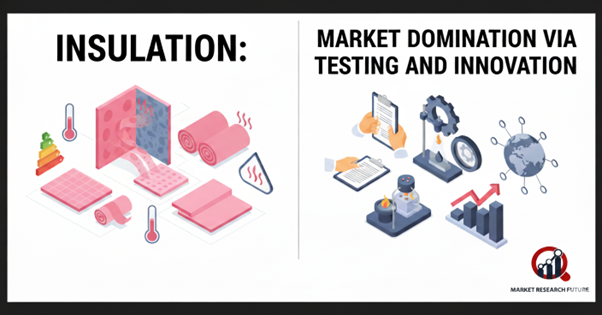Insulation: Market Domination Via Testing and Innovation

Insulation Market Insights
Insulation is the act of preventing heat transfer and reducing air leakage. It can also guard against outside noise and drafts, or in some cases, it may be used for soundproofing. In order to achieve this insulation, you'll need to install a qualified product in your home, such as spray foam insulation or rigid board insulation.
Insulation is a crucial part of the HVAC system and there are several things to consider. What type of insulation is best for my home? How do I choose an insulation contractor? What types of insulation does the market have available to me?
We will explore these questions and more in this article. We will discuss the current trends and products on the market, including wholesale insulation available at GCI's Insulation Expo. And we will offer some general guidelines for choosing the best products for your home.
Insulation Type
First things first: What does good insulation actually do?
There are two primary functions of insulation: energy efficiency and thermal protection. Energy Efficiency – most insulation products offer R-values (the rating for how much heat the insulation allows to pass through it). The higher the R-value, the greater chance of lowering heating and cooling costs. Thermal Protection – Insulation also acts as a barrier to keep outside elements, like cold air or moisture from getting into your home.
During colder weather, warm indoor air needs to flow through the home and into the conditioned space. If cold air is able to flow through the home, then heat loss can occur. When this happens, your energy costs go up and your comfort level suffers. Insulation keeps warm indoor air in during the winter months and helps keep your home comfortable in those chilly temperatures.
Some insulation products will claim to both lower energy costs and help keep you more comfortable (a combo deal!) but that's not always the case. Keep in mind what exactly you want your insulation product to do for you – be clear about what's most important when choosing an insulation product.
In climates where it gets cold, insulation provides substantial cost savings through energy efficiency alone. You'll generally find three different types of insulation products on the market: blown-in, sprayed-on and hybrid.
Blown-in Insulation – a method of insulating your home that involves placing an insulation product into your home, typically over the attic area. The insulation is then blown into cavities around your home (i.e., ceilings, walls and floors) with heated air – it's mixed with air that contains oxygen to help create "gas" bubbles in the insulation material to fill in spaces between boards and other spaces within your structure.
The quantity of used insulated elements constitute more than 60% of the total volume in the construction business. Depending on the application, it is not only an important part but also a factor to consider for overall production efficiency.
The global insulation market has seen remarkable growth over the past few years. Analysts predict the global market to remain in a growing position. The growth is influenced by the increasing population, rise in the income level, and awareness about energy conservation.

Leave a Comment